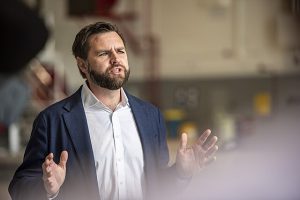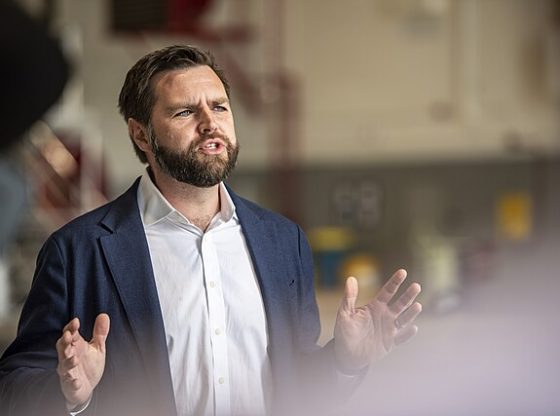Newt and I recently attended the Republican National Convention in Milwaukee. On July 17, we listened as Ohio Sen. J.D. Vance accepted the Republican vice-presidential nomination and said: “My friends, tonight is a night of hope. A celebration of what America once was, and with God’s grace, what it will soon be again.”
During his acceptance speech, as thousands watched in Milwaukee’s Fiserv Forum and millions more from their homes, Vance told his story, articulated the values he lives by, and affirmed that he will fight for Americans who have been overlooked, forgotten and ignored.
Vance spoke of being raised by his Christian grandmother, “Mamaw,” in Middletown, Ohio, “a small town where people spoke their minds, built with their hands, and loved their God, their family, their community and their country with their whole hearts.”
Though Vance was surrounded by Christian faith and values in his youth (and greatly admired his Catholic uncle), it was not until his teenage years that he joined an organized church.
As an adolescent, Vance attended a large Pentecostal church with his biological father after the two reconnected. “I’m not sure if I liked the structure or if I just wanted to share in something that was important to him — both, I suppose — but I became a devoted convert,” Vance wrote in his best-selling memoir, “Hillbilly Elegy.”
However, throughout his young adulthood, Vance’s faith lapsed, as he described in a nearly 7,000-word essay for The Lamp titled “How I Joined the Resistance.” After finishing his service with the Marines and attending college at Ohio State University, Vance discarded his faith and claimed to be an atheist.
Surrounded by secularism in college, Vance was ingrained in a culture that saw faith as “at best, provincial and stupid; at worst, evil” and got caught up in “the madness of crowds,” which caused him to abandon his faith.
“Much of my new atheism,” he wrote, “came down to a desire for social acceptance among American elites.”
Though Vance admitted to adopting a worldview tinged with an air of arrogance at this time, seeds of doubt surrounding his newfound perceptions took hold throughout college and later in law school.
For Vance, the “first crack in [his] proverbial armor” would come from a meditation by Saint Augustine that he read while attending Yale Law School as he contemplated his “twin desires – for success and character – and how they conflicted (and didn’t).”
The passage from Saint Augustine criticized man’s arrogant attempts to conform Sacred Scripture to his own opinions when man’s aim ought to be to conform his opinions to the truth in Sacred Scripture.
While Augustine gave Vance “a way to understand Christian faith in a strongly intellectual way,” a law school talk by Christian venture capitalist Peter Thiel inspired him to re-examine what he was striving for and to learn more about the Christian faith. Later, writings by French philosopher René Girard’s “theory of the scapegoat – and what it revealed about Christianity” inspired Vance to “reconsider [his] faith.”
After much reflection on faith and virtue, Vance searched for a “worldview that understood our bad behavior” and eventually realized that he “had already been exposed to that worldview: Mamaw’s Christianity.”
In his essay for The Lamp, Vance discussed reading Saint Augustine’s description of Roman debauchery in “City of God,” studying a book by policy analyst Oren Cass that criticized the veneration of consumption and learning from Dominican friars – all of which eventually led him to the decision to become Catholic.
As Vance wrote of his conversion: “I realized that there was a part of me – the best part – that took its cues from Catholicism. … It was the Catholic part of my heart and mind that demanded that I think on the things that actually mattered … And I needed grace. I needed, in other words, to become Catholic, not merely to think about it.”
In August 2019, J.D. Vance was received into the Catholic Church. His lifelong road to Catholicism is an inspiring and motivational journey of faith.

Featured Image Credit: Ralph Branson












